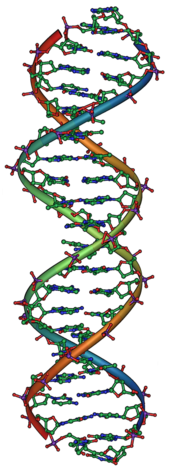It's National Science Week here in Australia and the government is celebrating by partnering with Australian Poetry in an inaugural Science Poetry Competition. Poems need to have a theme that explores scientific understanding and achievements across any scientific discipline. The contest is open until the 23rd of August, and winners get $1,000, flights and accommodation in Canberra to attend the Prime Minister's Prizes for Science Dinner in October. Aussies only I'm afraid.
If you want inspiration, look no further than the beautifully presented books Holding Patterns, Earthly Matters, and Law & Impulse which you can download free from the Science Week website. I might be a wee bit biased because I have some poetry included in the books ("Six Flavours of Quark" in Holding Patterns, and "10 Digits of e" in Law & Impulse) which were published during National Science Week 2010 by the Poets Union, but I also have to say that the poetry in these collections is superb.
To celebrate this year's prize, the National Office is publishing one poem a day from the books, and today's poem is the exquisite "The smallest articles of faith" by Fiona McIllroy (from Holding Patterns). If you don't think that science and poetry go together, you haven't read good science poetry. Rectify that right now by going straight over to the site and grabbing a copy of those books (or just reading the poem of the day if you're time strapped): http://www.scienceweek.net.au/science-poetry-competition/
If you decide to enter the competition, good luck!
Showing posts with label science poetry. Show all posts
Showing posts with label science poetry. Show all posts
Monday, August 12, 2013
Tuesday, November 27, 2012
Spirals and autographs
Spirals
NGC4736
take that
a dirty incoherence of numbers
and letters
your identity
crushed into a spiral galaxy
empty of dark matter
an absence of darkness
your exotic invisible substance
denied
some would call that ‘light’
shake unwashed hair
and swear
no such thing exists
you hold tight to darkness
the hardening addiction
that clinks
against the side of your glass
each night as your hand drops
in spiralling slumber
rotation slows as you move
further out
from the crowded inner reaches
of your galactic core
motions sedated
gravity weakening
it might be the big bang’s
afterglow
that leaves you gasping for air
a stone’s throw
from one galaxy full of dark
matter
to another full of light
pulsing
as you drift into another
dark sleep
"Spirals" references Messier 94, a spiral galaxy in the constellation Canes Venatici, and is taken from the book Repulsion Thrust. If you'd like a personalised autograph for your Kindle copy of Repulsion Thrust (or for one you buy for a science/poetry loving pal as a pressie) just click on the link below. If you prefer a hard copy, drop me a line and I'll post out an autographed bookplate.
Labels:
Kindle,
poetry,
science poetry
Sunday, May 27, 2012
Poetry Monday: the intersection of science and poetry
What men are poets who can speak of Jupiter if he were like a man, but if he is an immense spinning sphere of methane and ammonia must be silent?
Ruth Patel makes the excellent point that both scientists and poets move between macro and micro perspectives, finding the universal in the particular. Some modern science inspired poets whose wonderful work has caught my eye over the past year include Emily Ballou, with her Darwin Poems (some of which are taken holus-bolus from Darwin's diaries - he was rather a poet himself), this year's Pulitzer Prize winning Life on Mars by Tracy K Smith, and Urban Biology by Ian Gibbins, who I've just interviewed here. Ian and I spoke at some length (though not long enough...we could have gone on for quite a while more I think) about the intersection between science and poetry. Because the conversation was so good, I didn't get the chance to ask him to read what is probably my favourite poem - "Space Invaders", the slightly tongue-in-cheek, but still chilling piece that opens the book. I'm just giving you a tiny taste from the second stanza. If you want more, visit Gibbins' website.
Once we are here,
molecule by precious molecule,
we will infiltrate your haemopoietic stream,
until your body fluids flow as thin as solar wind.
Like bamboo beneath your fingernails,
we will reduce all commuincation
to compromise and distant coments,
adrift in the cloying starlight.
Labels:
science poetry
Subscribe to:
Posts (Atom)




